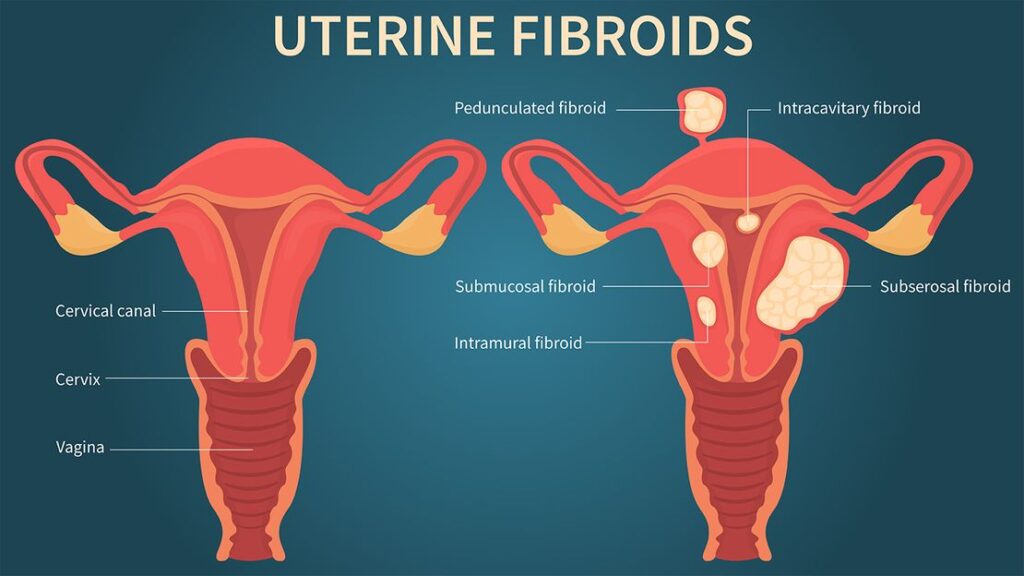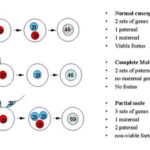
Being diagnosed with a tumor, whether benign or malignant, can be a major source of concern given the statistics in respect to cancer cases. Nevertheless, majorities of experts tend to believe that fibroid tumors ought not to raise fears in patients. This is because chances of malignancies developing are minimal. Furthermore, there are excellent therapy options for fibroid tumors accessible in the market. Therefore, if you are surfing for information in regards to fibroids during pregnancy, you will find this article quite an interesting read.
What Are Uterine Fibroids?

Fibroid tumors are also commonly referred to as uterine fibroids. In medical terms, uterine fibroids simply refer to mild growths which start within the womb (i.e. uterus). Even though uterine fibroids are made up of similar even muscles as is the case with uterine wall, they are quite dense compared to ordinary myometrium. Uterine fibroids are usually identified by their round figure. Then again, there are uterine fibroids that are oval in shape.
According to a recent study, it was discovered that there are roughly 40% of women aged between 35 and 40 years of age suffer from uterine fibroids. The study went further to reveal that uterine tumors are common occurrences amongst women of African-America lineage. On the other hand, there are studies which indicate that approximately 80% of women of African-American decent will develop fibroid tumors. Whereas there are a number of women who hardly experience the signs and symptoms displayed by uterine fibroids, the dimension plus site of the fibroid tumor can trigger signs and symptoms which can interfere with one’s quality of life.
Related: Is Bleeding During Pregnancy Normal?
What Are The 4 Types of Uterine Fibroids?
It’s important to understand where your fibroid is and how it can impact fertility and pregnancy if you’re trying to become pregnant. According to their locations, fibroids are given the following names:
Intramural Fibroids
This is the most prevalent forms of fibroids that form within the uterine wall. They can cause copious or uncomfortable bleeding and enlarge the uterus. They could interfere with fertility as well.
Submucosal Fibroids
These tumors develop beneath your uterus’s mucous membrane. They may affect the endometrial or lining, which lowers the likelihood of fertilization. They may also result in uncomfortable or very heavy periods.
Subserosal Fibroids
These tumors strain on the colon and bladder because they develop outside the uterus and may enlarge or protrude into the pelvis.
Cervical Fibroids
As their name implies, they form in the uterus’ neck.
What are the Common Causes of Uterine Fibroids?
To date, it is not really known why women develop uterine fibroids. However, doctors have suggested that this type of tumor can be as a result of:
- Genetic anomaly.
- Changes in development factor expression.
- Anomaly within the vascular system.
- Tissue reactions to injuries.
Family history also plays a crucial factor in determining whether or not you will suffer from uterine fibroids. If a member of your family has suffered from fibroid tumor, likelihoods are that you too may suffer from it. Then again, as pointed out earlier, women of African-American origin are two times more likely to suffer from uterine fibroids in contrast to women of other races.
What are the Common Signs and Symptoms of Uterine Fibroids?
Sadly, majorities of women who suffer from fibroid tumors hardly display any symptom. Nonetheless, there are certain signs and symptoms that can suggest you are suffering from uterine fibroids. Listed below, are some of the common signs of uterine fibroids:
- Anomalous uterine bleeding.
- Pain within the pelvic area.
- Pain while defecating as a result of pressure being applied to the rectum.
- Recurrent or blocked urination.
Whereas uterine fibroids have not been known to affect ovulation, a number of researches indicate that fibroid tumor can lead to infertility if left untreated.
Can Fibroid Develop When You Are Pregnant?
Fibroids may develop any time and even during pregnancy. It is very common for women learn that they have fibroid growth only after a routine prenatal exam. And with fibroids during pregnancy comes several complications like difficulties when the mother is in labor since large fibroids may affect the position of the baby causing it to shift; women with fibroids often deliver babies in breech position or even with the shoulder presenting.
The placenta may separate from the uterine wall as a result of developing fibroids during pregnancy which could be very fatal for the unborn child; it can lead to death and many other maternal complications.
Related: I’m Pregnant. What If I Have Fibroids?
How Do Uterine Fibroids Affect Women?
Up to this day, what are fibroids and the cause of uterine fibroids remains to be unknown; but specialists and researchers agree that it could be caused by hormones estrogen and progesterone that stimulate the lining of the uterus. Genetic alternations and exposure to chemicals that can lead to changes in the cells of the body; these can affect the muscle cells of the uterus causing abnormalities, like fibroids, appear.
And with the increase in possibility of having fibroids, specialists have studied the effect of this condition on women’s health, relationships and her ability to raise a family.
Physical Changes
Women who have fibroids may have a few to no symptoms to seek medical help. Initially, there are symptoms that may just be overlooked:
- Menstrual changes – she may find irregular menses with weeks when the flow seems to be heavier compared to other months. Periods may last for more than 5 days to a week, accompanied with abdominal pain, feeling of heaviness on the pelvic areas and on lower back. All these symptoms may be overlooked as just regular symptoms of having menstrual periods and are sometimes not a cause for worry in some women.
- Painful changes – she may suffer from back pain, leg pain and pain on the upper thighs when fibrous growths enlarge and press on nerve endings that are abundant near the uterus. Pain may increase as a person is in a relaxed, supine position. Pain may affect usual daily activities and may also affect gait. She may not be able to perform activities that she can do before without experiencing pain on the lower extremities and on the lower back.
- Urination and bowel changes – there are women who experience changes in bowel movement when large fibroids press on the sections of the bowel causing constipation and other gastrointestinal conditions. There is also expected reduction or difficulty in urination since the fibroid mass can also press on the urinary bladder and on the tubules that lead to bladder causing increase in urgency to urinate and increase filling of the bladder.
- Dyspareunia – There is also pain with intercourse when the fibroid may press the walls of the uterus.
- Menopause – fibroids can become complicated and affect the secretion of the hormones progesterone and estrogen which can lead to premature menopause symptoms. Aside from cessation of the menstrual period, she may suffer from menopause symptoms like hot flashes, night sweats, weight gain, abdominal pain, etc.
Emotional Changes
Although uterine fibroids are considered noncancerous, having been diagnosed of having these growths can affect a woman emotionally and psychologically. She may worry about the fibroid developing into a cancerous growth or worry about the expenses of the treatment or surgical procedure. Lack of knowledge about fibroids can lead to anxiety and stress that can affect her work, her career, her relationships and her family. It is common for women who are diagnosed with fibroids to feel depressed and may also question as to why this condition has happened.
Some women may seek what are fibroids consultation immediately as well as seek medical treatment for their condition which reduces the possibilities for more complications as well as improve her knowledge of her condition.
Sexual Changes
There are a few women who may suffer from pain while intercourse which leads to a strain in her sexual intimacy with her partner. Although some partners may truly understand this condition, some who don´t know what are fibroids may resort to blaming and aggression that can only affect the woman’s psychological condition.
Fertility Changes
Fibroids may grow and block the passage of egg from the fallopian tubes to meet the sperm at the cervix causing infertility. Some large fibroids may also grow and develop on the inner lining of the uterus reducing the potential blood supply of a fertilized embryo resulting to miscarriage. It is therefore important to seek medical help for fibroids before considering pregnancy.
Effects During Pregnancy
Although it is not necessary to remove fibroids during pregnancy; the growth may develop into a large mass affecting the unborn child as the mass may restrict nutrients and blood flow to the neighboring placenta. Fibroids can increase the possibility of placenta previa where the placenta detaches from the walls of the uterus and may also complicate pregnancy. The baby may present with the feet or the shoulders instead of a head delivery through normal vaginal delivery. Some obstetricians resort to caesarian delivery when a pregnant woman is diagnosed with uterine fibroids. Fibroids may also increase the possibility of bleeding and pain after delivery. Recovery after pregnancy and delivery may take longer when a woman also has fibroids. for this reason is very important to know what are fibroids before you consider getting pregnant.
Related: Menorrhagia Causes, Symptoms and Risk Factors
Can Fibroids Increase The Risk Of Infertility And Miscarriage?
Fibroids can develop in any area inside and in nearby structures like the fallopian tubes which can block the passage of an egg or sperm for fertilization. Since fibroids multiply and can grow into irregular forms, it can distort the small tubes of the fallopian tubes as well as affect the walls of the uterine cavity. This results in temporary infertility and may even progress to permanent infertility when fibroids gradually increase in size and multiply.
As fibroids develop along the uterine walls, the growths disrupt blood flow to the area which can affect the blood supply of the growing embryo which may lead to miscarriage. The uterine wall may also regard small fibroid growths as foreign and may lead to an inflammatory reaction that can affect fertilization as well as implantation of the embryo on the walls of the uterus. As you can see the first effect about fibroids during pregnancy is the infertility, but What happens if you are already pregnant and starts the fibroids?
How Do You Treat Fibroids During Pregnancy?
The most common treatment for large, multiple and growing fibroids is surgery but it is rare that fibroids could grow and cause harm since these are noncancerous growths. Most fibroids even shrink as the hormone levels tend to drop during the woman’s menopausal stages.
Fibroid growths are usually accelerated by increased levels of estrogen which is why the first advice to patients with uterine fibroids is to avoid using birth control pills. Fibroids are also found to increase in size and multiply when a woman is exposed to different toxins and chemicals like herbicides as well as any kind of food or food products that mimic the action of natural estrogen.
Although most fibroids will naturally decrease in size overtime, women diagnosed with uterine fibroids are faced with uncertainty and anxiety over their condition. Which is why more and more women seek alternative and holistic treatments to reduce fibroid growth. Here are three popular holistic approaches in treating fibroids and to possibly prevent fibroid growth from developing in the future: (these treatments, being natural, can help your situation of fibroids during pregnancy without taking unnecessary risks)
Cleansing Treatment
As the body is exposed to toxins, harmful chemicals like pesticides and herbicides fibroids may develop and increase in size. It is natural and practical to cleanse the body free from toxins to allow the uterus to recover from fibroid growths and to improve overall health. Follow these steps:
Drinking plenty of water, about 8 or more glasses, is the best way to do liver cleansing and colon cleansing as water dilutes and washes away toxins from the body.
Adding more fiber to your daily diet is another way to naturally cleanse the body; you may eat foods like vegetables, fruits, whole grains, lentils, berries and many more.
Exercise
Exercise not only improves energy levels, stimulates the immune system and may also be a perfect holistic and natural treatment for fibroids. It improves blood flow to the many organs including the uterus and other reproductive organs resulting in increase oxygen and nutrient delivery. These gradually lead to a reduction in fibroid size, amount and may even prevent fibroids from developing the future. Women who are known to exercise regularly may reduce the risk of developing fibroids and many other health conditions as well.
- You may start walking to short destinations everyday and slowly increasing your distance as you can manage.
- Get your rusty bike out and pedal your way to a fibroid – free tomorrow! You may get all your chores done while riding your bike like going to the market or to the park.
- You can enroll in a gym for a full body workout with complete equipment and professional training.
Using Alternative Remedies
There are so many alternative natural remedies available for the treatment of fibroids as well as other conditions of the reproductive system. Milk thistle (Silibum marianum) is one of the most popular natural remedies that are also used for treatment of liver disorders. Experts believe that ensuring that the liver is healthy can lead to making other organs of the body healthy; thus treating uterine fibroids by using milk thistle to strengthen the liver may be a suitable remedy. But care has to be ensured when taking any natural herbal remedy for fibroids; always consult your doctor especially when you are pregnant or breastfeeding.
Milk thistle is available in 120 to 140 tablet form and taken two to three times a day.
So, at this point, you may have a better idea about fibroids during pregnancy and in a more better position to take a decision with regard to your treatment options.
Related: Should I Have the Flu Vaccine During Pregnancy?






